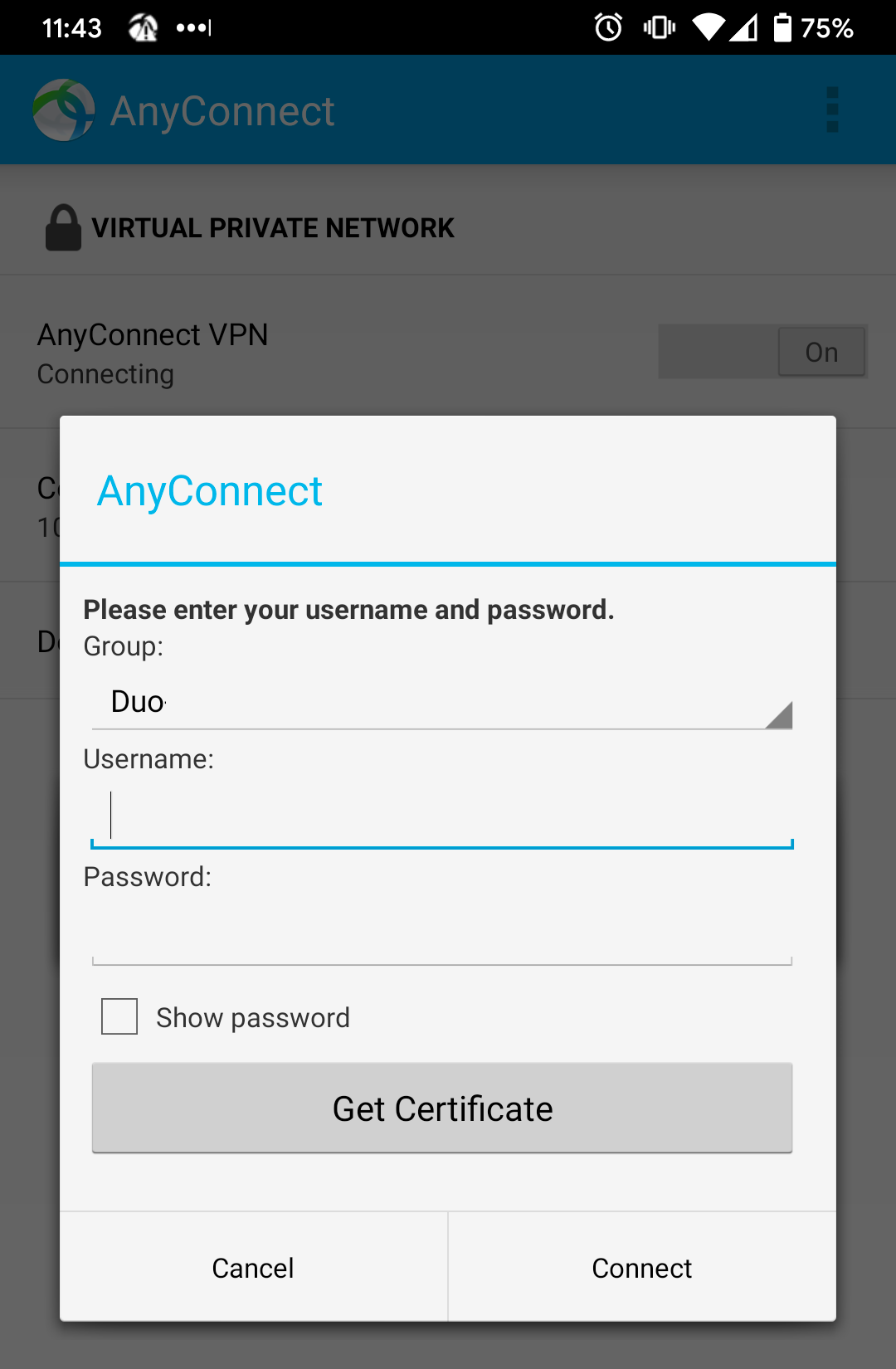- Cisco AnyConnect - Empower your employees to work from anywhere, on company laptops or personal mobile devices, at any time. AnyConnect simplifies secure endpoint access and provides the security necessary to help keep your organization safe and protected.
- Yale VPN (Virtual Private Network) is a way to securely access Yale's restricted services and resources on the University network from a non-Yale internet source. VPN is also required for remote access to on-campus workstations (via Remote Desktop Connection RDC). The University recommends Cisco AnyConnect software to connect to the Yale VPN.
Yale Remote Vpn
Yale's clusters can only be accessed on the Yale network. Therefore, in order to access a cluster from off campus, you will need to first connect to Yale's VPN. More information about Yale's VPN can be found on the ITS website.
Aug 20, 2020 To use VPN, download the program 'Cisco VPN AnyConnect' from the Yale Software Library. When connecting to VPN, you will also have to authenticate using Multifactor Authentication/Duo Security. More information is available here. Once you log into the VPN, you maintain a Yale session for the day.

VPN Software
Windows and macOS
Yale Anyconnect Vpn
We recommend the Cisco AnyConnect VPN Client, which can be downloaded from the ITS Software Library.
Linux
On Linux, you can use openconnect to connect to one of Yale's VPNs. If you are using the standard Gnome-based distros, use the commands below to install.
Ubuntu/Debian

How Do I Install The Cisco AnyConnect Client On Windows 10 ...
Fedora/CentOS
Connect via VPN
You will need to connect via the VPN client using the profile 'access.yale.edu'.
Multi-factor Authentication (MFA)

Authentication for the VPN requires multi-factor authentication via Duo in addition to your normal Yale credentials (netid and password). After you select 'Connect' in the above dialog box, you will be presented with a new prompt to enter your netid, password and an MFA method.
Depending on what you choose you will be prompted to authenticate via a second authentication method.
- If you type 'push', simply tap 'Approve' on your mobile device.
- If you type 'sms' you will receive a text message with your passcode. Enter the passcode you received to authenticate.
- If you type 'phone', follow the prompts when you are called.
Once you successfully authenticate with MFA, you will be connected to the VPN and should be able to log in the clusters via SSH as usual.
More information about MFA at Yale can be found on the ITS website.
Yale Virtual Private Network (VPN) is a way to securely access Yale’s restricted services and licensed e-resources (e.g. e-journals such as JAMA, or databases such as ArtSTOR) on the University network from a non-Yale internet source. VPN is also required for remote access to on-campus workstations - via Remote Desktop Protocol (RDP). While VPN provides excellent network security, it should only be used from an appropriately secured computing device.
To connect to VPN do the following:
- Download and install the free VPN software (Cisco AnyConnect) from the Yale Software Library
- Launch AnyConnect to access any Yale resources
- Enter the address access.yale.edu and then click Connect in the AnyConnect window.
- Enter your NetID and NetID password when prompted.
- Enter the Multifactor Authentication (MFA) code from the DUO app
For additional assistance with VPN or the Multifactor Authentication DUO app, contact the Yale ITS help desk.
A post shared by Bass Library (@basslibrary) on Mar 11, 2020 at 7:58am PDT
